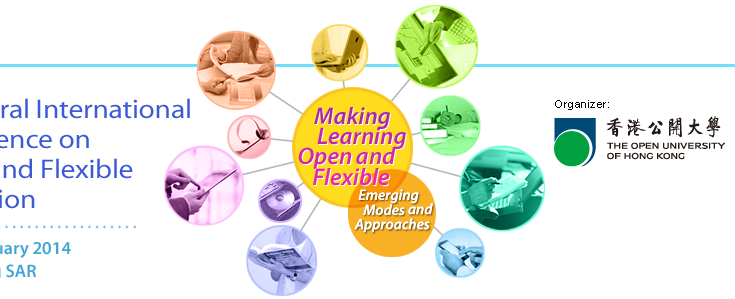Topics: The conference is soliciting state-of-the-art research papers in the following areas of interest:
e-Education:
Systems, Design and Technologies
practices and cases in e-education
systems and technologies in e-education
applications and integration of e-education
e-learning evaluation and content
campus information systems
e-learning technologies, standards and systems
mobile learning
computer aided assessments
knowledge management
virtual learning environments
multimedia in e-learning
marketing and promoting e-learning
social benefits of e-learning
organization learning
technology adoption and diffusion of e-learning
other relative topics
e-Learning:
Systems, Design and Technologies
e-Learning platforms
portals and Virtual learning
environments
Course design
Emerging and best practices
Partnerships in e-Learning
Evaluation of e-Learning
Cross-cultural
education
e-Learning strategies
Social benefits of e-Learning
e-Learning effectiveness and outcomes
Web-based learning
Academic participation and freedom
Learner autonomy
Security and confidentiality
Self-learning integrated methodology
Ambient intelligence
Assertive and assistive educational technology
Computer-aided assessment
Learning content management systems
AV-communication and other media
Digital classrooms
Blended learning
Collaborative on-line learning
Content repositories
Data envelopment analysis
Meta data standards
Ontologies
Pedagogical models
Needs analysis
other relative topics
e-Commerce
Business-to-business e-commerce
Business-to-consumer e-commerce
E-government, policy and law
Business/Enterprise Architectures
Mobile and pervasive commerce
Electronic Markets and Multiagent Systems
Semantic Web ontologies, rules and services
Digital goods and products
e-Negotiations, auctioning and contracting
B2B, B2C, and C2C models
Agent-mediated e-Commerce
e-Marketplaces, e-Hubs, and portals
Pervasive technologies for eCommerce
Dynamic pricing models
P2P-computing for e-Commerce
e-Payment systems
e-Commerce content management
Consumer protection in eCommerce
User behavior modeling
e-Business
Innovative business models
Enterprise application integration
Business process re-engineering
Virtual enterprises and virtual markets
Supply, demand, and value chains
Virtual organizations and coalitions
Customer relationship management
e-Collaboration and e-Services
Inter-organizational systems
Future work environments for e-Business
Business process integration
e-Work
Inter-workflow
Mobile business
e-Service
Web Services, Grid Services and Service-Oriented Computing
Semantic Web and Ontology
Web Intelligence, Agents and Personalization
Pervasive, Mobile and Peer-to-Peer Computing Technologies
Context-Aware, Location-based and Autonomous Computing
Security, Privacy, Trust and Reputation for e/m-Services
Payment Technologies for e/m-Services
Middleware for e/m-Services.












/https%3A%2F%2Fprofilepics.canalblog.com%2Fprofilepics%2F1%2F0%2F1076071.jpg)